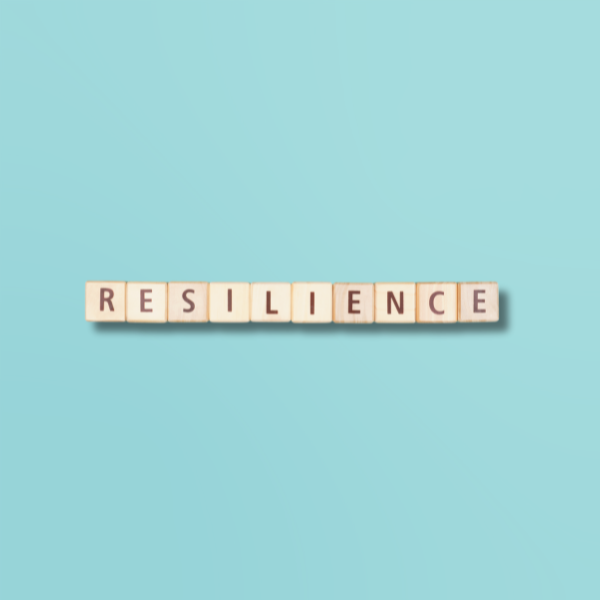In the rewarding yet demanding world of veterinary nursing, resilience is one of the most valuable qualities you can develop. Every day, you face unique challenges—whether it’s managing a complex case, comforting a worried pet owner, or juggling the many pressures of a busy clinic. Mistakes or setbacks may occasionally happen despite your best efforts, and these moments can feel discouraging or overwhelming.
But here’s the truth: setbacks are not signs of failure. They are natural, unavoidable experiences that everyone encounters on their professional journey. How we respond to these moments can either limit us or become powerful catalysts for growth and improvement. Developing resilience means learning to bounce back with strength, compassion, and clarity—even when things don’t go as planned.
Resilience doesn’t mean never feeling upset or frustrated; it means having the mindset and strategies to recover, learn, and move forward. For vet nurses, building resilience is not just about coping—it’s about thriving in a role that demands emotional strength, adaptability, and dedication.
In this article, we’ll explore practical resilience strategies designed to help you navigate mistakes and setbacks with confidence. These tools will support you in transforming challenges into opportunities, fostering a mindset that embraces growth and encourages a positive outlook for your future in veterinary nursing.
Let’s explore some key strategies to help you build resilience and keep moving forward on your veterinary nursing journey.
1. Acknowledge and Accept
The first step in building resilience is to acknowledge that mistakes and setbacks happen—and that’s okay. Instead of beating yourself up or avoiding the issue, face it with kindness. Acceptance allows you to clear your mind of blame and focus on what can be learned. Remember, every veterinary nurse, no matter how experienced, has encountered setbacks. What sets resilient nurses apart is their ability to embrace those experiences as opportunities for growth.
2. Reflect With Purpose
Reflection is a powerful tool for turning challenges into learning moments. After a difficult situation, take time to ask yourself: What happened? What could I have done differently? What external factors contributed? This kind of purposeful reflection helps you identify practical steps for improvement without dwelling on negative emotions. Consider keeping a journal to track your reflections and celebrate your progress over time.
3. Reframe Your Mindset
How you interpret setbacks greatly influences your response. Practice reframing negative thoughts into positive or constructive ones. For example, instead of thinking, “I failed,” try, “This is a valuable experience that helps me improve.” Cultivating a growth mindset fosters optimism and encourages you to see challenges as temporary hurdles rather than permanent roadblocks.
4. Seek Support and Collaboration
Resilience thrives in connection. Reach out to trusted colleagues, mentors, or friends who understand the unique pressures of veterinary nursing. Sharing your experiences not only lightens emotional burdens but can also provide fresh perspectives and advice. Remember, asking for help is a sign of strength, not weakness.
5. Take Action and Set Small Goals
Proactive steps empower you to regain control. Identify small, manageable goals that can help you move forward. Whether it’s practicing a clinical skill, improving communication, or managing stress, incremental progress builds confidence and momentum. Celebrate each small victory as a testament to your resilience.
6. Prioritise Self-Care
Resilience is closely tied to your overall well-being. Make self-care a non-negotiable part of your routine—whether that means regular exercise, healthy eating, quality sleep, mindfulness practices, or simply taking breaks. When you nurture your body and mind, you’re better equipped to handle challenges with clarity and calm.
Related: Prioritising Self-Care: Essential Strategies for Veterinary Nurses to Thrive
7. Learn and Adapt
The veterinary field is constantly evolving, and so can you. Use setbacks as catalysts to update your knowledge, sharpen your skills, or develop new strategies. Adaptability is a cornerstone of resilience, enabling you to navigate change with confidence and creativity.
Looking Ahead: Building a Resilient Future
Every vet nurse has the potential to cultivate resilience and thrive in the face of adversity. By embracing mistakes and setbacks as natural parts of the learning process, you are not only strengthening your professional skills but also nurturing your personal growth. The journey may have bumps, but each step forward brings you closer to becoming the compassionate, capable, and resilient nurse you aspire to be.
Remember, resilience is a skill you build—one mindful choice at a time. So take a deep breath, lean into your support network, and keep moving forward with courage and heart. Your future self will thank you.
To support you every step of your veterinary nursing journey—from student to confident professional—AIRC is here to provide valuable resources, guidance, and encouragement. Explore our Vet Nurse Insight Hub to explore further tools and insights designed to help you grow, learn, and thrive throughout your career. Remember, you can also reach out anytime to your dedicated Student Support Coordinator for personalised assistance and advice.

